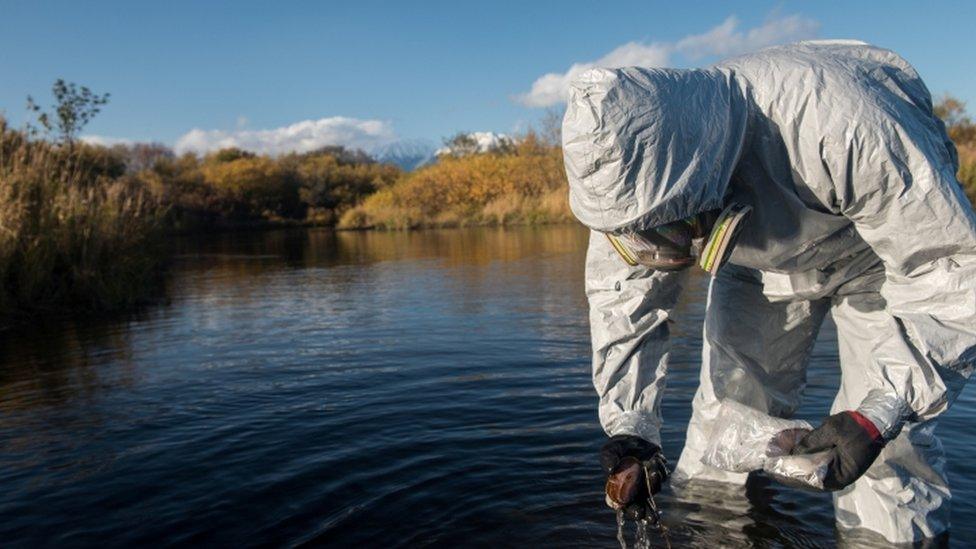Kamchatka: Toxic algae blamed for mass marine death in Russia
- Published

Greenpeace Russia has sent its own teams to investigate the incident
The mass death of sea creatures off the coast of Kamchatka in Russia's far east was most likely caused by toxic algae and not man-made factors, Russian officials have said.
The find weeks ago raised fears of a major marine pollution incident.
Social media posts showed dead octopuses, seals and other sea life. Local people complained of sickness.
But a spokeswoman for Russia's Investigative Committee said there had been no oil spills in the area.
Svetlana Petrenko added that no signs of poisoning were found on those who sought medical treatment.
A dead octopus - among many dead sea creatures washed ashore in Kamchatka
"No heavy metals were found in samples of water, soil or sea creatures. All this confirms the version of natural pollution, including as a result of phytoplankton blooms," she said.
Initial analysis detected oil products and phenol in the water, but Ms Petrenko said the raised levels of these substances were not critical and had been in the area since 1970.
Natural Resources Minister Dmitry Kobylkin told Russian media it was still not clear why this was happening and it was important to find out why the algae was so toxic.
"We would like to look at why there was a fall in oxygen in the water... I don't have an answer to this yet," he said, quoted by Reuters.
When the event first came to light in late September, reports said that the waters on Khalaktyr beach had changed colour and had a peculiar smell.
Local residents who used the Pacific beaches complained of vomiting, fever, rashes and swollen eyelids.
Environmental group Greenpeace described the incident as an ecological disaster. It has called for an "independent, transparent investigation" and sent its own teams of scientists to the region.
Kamchatka is one of Russia's remotest regions, famous for its pristine nature and active volcanoes.
Discoloured Pacific waters can be seen along the Kamchatka shore
More on Russia's environmental problems:
Large mounds called thermokarsts in Siberia are a result of permafrost thawing